Why Can't I Connect to VPN From Home? Do I Need a Home VPN?
5 min. read
Updated on
Read our disclosure page to find out how can you help Windows Report sustain the editorial team. Read more
Key notes
- VPNs have a solid reputation as one of the most efficient ways to protect your online privacy. Thus, it can get really frustrating when they don’t work as they should.
- Sometimes, you might not be able to make the VPN work on your home connection. However, this situation can often be fixed following a few easy steps.
- Check out our best VPNs that are less likely to have connection issues.
- Visit the How-To Hub to discover more awesome guides on troubleshooting VPN issues.

VPNs have a solid reputation as one of the most efficient ways to protect online privacy. Some of the best ones offer many security and privacy features, and, to top it all, they won’t even log or monitor your data.
Therefore, it makes sense that more and more people started to embrace this tool as part of their daily routines.
For instance, they enjoy streaming content from their favorite entertainment platforms, spending time on social media, or even shopping online. As for router VPNs, they let you use VPN traffic for all devices on your network.
All the abovementioned activities can be much safer and more convenient from behind a VPN.
Keep in mind that VPNs don’t only protect your online privacy. They can also be used to bypass ISP restrictions such as geoblocking or bandwidth throttling.
If you didn’t know, limiting the bandwidth can lead to packet loss and increased in-game ping.
Well, now you know that VPN can take care of those.
Do I need a VPN at home?
A popular misconception described VPNs as only useful to companies that want to protect their data or those with remote employees who need to share their resources with them.
But riddle us this:
- Do you spend quite some time online from either one of your Internet-enabled devices?
- Are you growing desperate with ads that seem to read your mind?
- Is your ISP limiting your bandwidth and slowing down your connection speed?
- Do you wish to find cheaper flight tickets?
- Have you ever wanted to watch a show that’s only on the US version of Netflix?
- Do you fear you’re being closely watched by your ISP?
- Does your country’s government impose heavy censorship and restrict social media?
- Do you wish your online whereabouts were private, as they should always be?
Well, if you answered yes to most of these, we’ve got some news for you. You might desperately need a VPN at home to make sure your privacy stays, well, private.
However, installing and using a VPN from home can sometimes be troublesome. You might encounter some errors, the service might refuse to connect, you know, the usual.
If you’re far from tech-savvy, troubleshooting these issues can be a hassle. So let’s see what we can do about them.
What can I do if the VPN doesn’t work as it should?
1. VPN not connecting from home
This is one of the most common situations when your VPN refuses to work from home. You can use it on public WiFi, from your workplace, and even from your friend’s house, but not from the comfort of your own home.
Since the only thing changing in this equation is your location and perhaps your ISP, you might want to check if your ISP is not actively blocking your VPN.
Having VPN connection issues on your PC? Check out our guide and see how you can fix them.
Try using another VPN and see if the problem persists. Alternatively, you might want to restart your router/modem, and see if you can find any blacklist/whitelist rules on it.
2. VPN stopped working
Another common issue is when your VPN simply decides to give up. It may have worked flawlessly up until a few hours ago, but suddenly it refuses to load on your PC, or even connect to the server of your choice.
If you’ve recently performed some changes in your network/PC configuration, we suggest you revert them and see if your VPN situation has improved.
Your ISP might’ve blocked your VPN in the meantime, so checking up with them is also a good idea.
You should also try restarting your modem/router, and your PC. Last but not least, update the VPN client if possible, as some VPN providers render older versions of their service unusable after releasing an update.
3. VPN blocked on Windows 10?
It appears that Windows 10 has a mind of its own when it comes to VPN. Mostly because you might encounter Windows 10-specific VPN errors while you’re using this operating system. The good news is that you can most easily fix them.
It so happens that Windows 10 has a habit of occasionally blocking your VPN access. The unblocking process might have a lot of steps, but usually, you don’t have to go to the end of the list.
Most of the time, simply reinstalling the VPN client, installing Windows’ latest updates, or choosing a better VPN can easily solve the problem.
Make sure to check our guide above, and don’t give up if the first couple of suggestions don’t bring your VPN back to life. Windows 10 can be stubborn like that sometimes.
VPN not working at home can be easily fixed
More often than not, a VPN that doesn’t work at home can be tricked by restarting, reinstalling, or updating the VPN client. Restarting your computer and modem/router also yields great results.
However, it’s not the end of the world if your home VPN suddenly stops working. Ensure you try our suggested fixes mentioned above, and don’t give up if they don’t work right from the start.
And keep in mind that certain governments and organizations can restrict you from accessing VPNs from official websites, yet there are some tips that you can apply in such cases too.




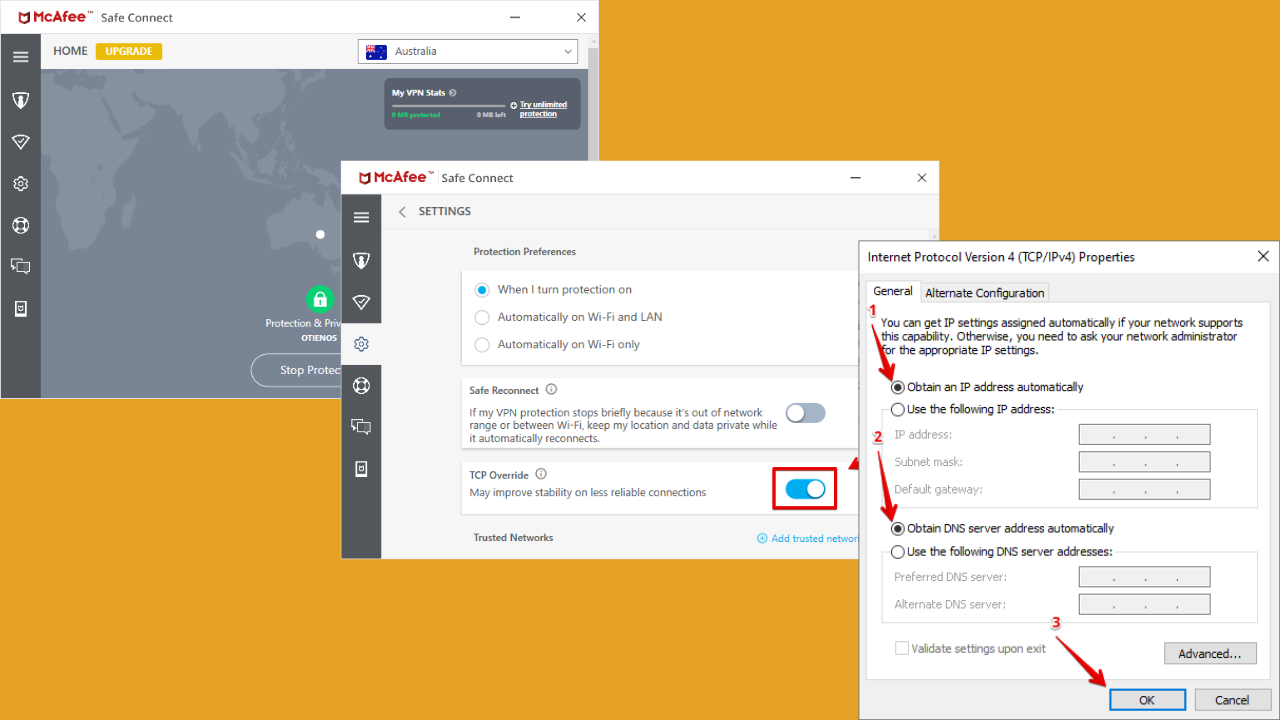
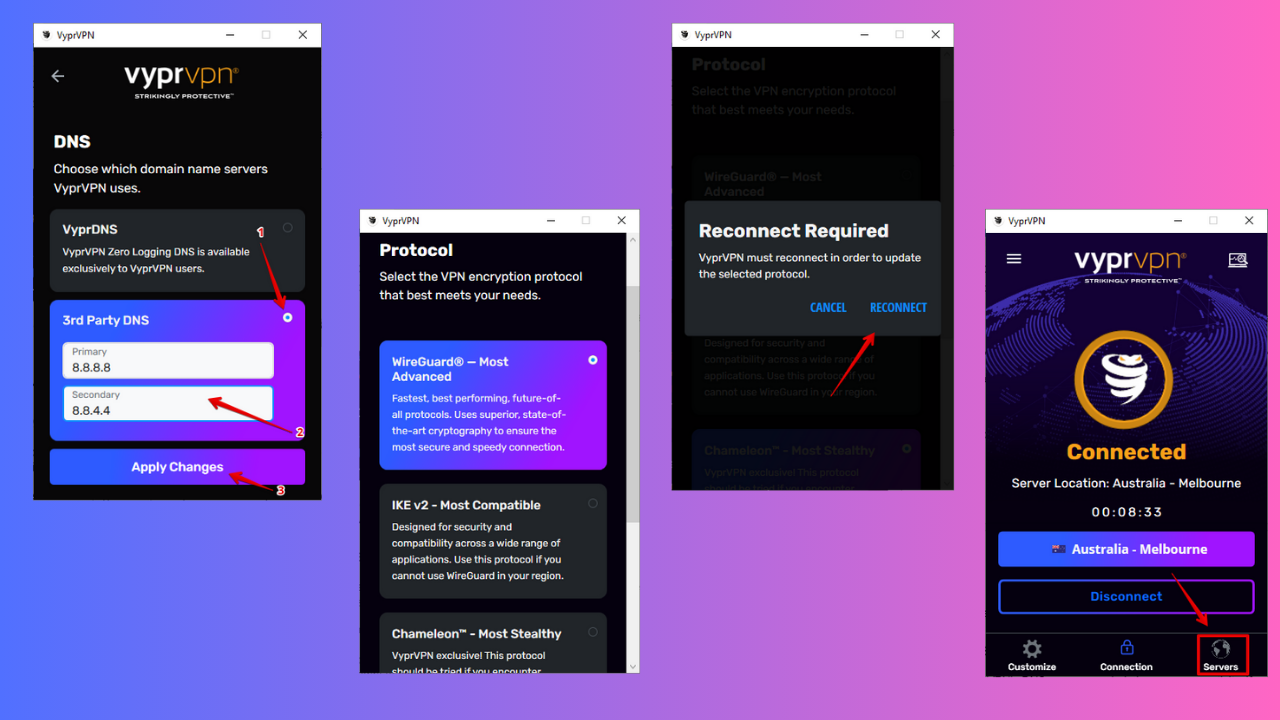
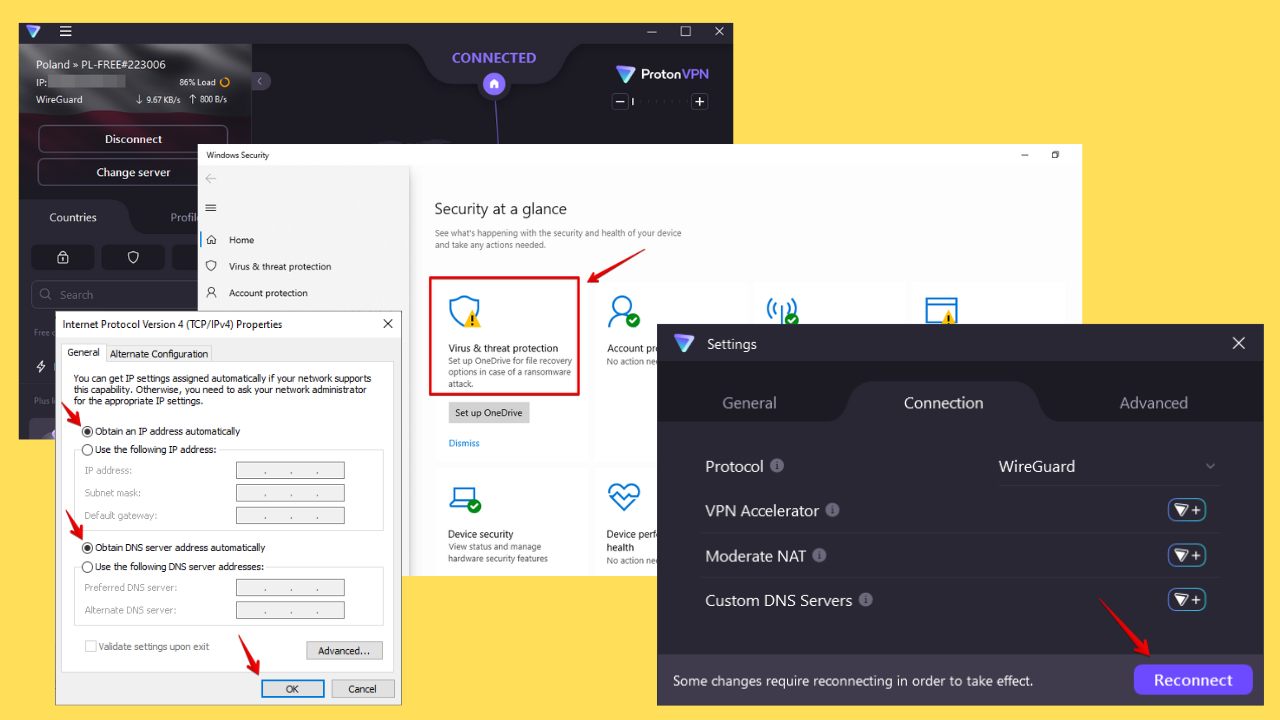
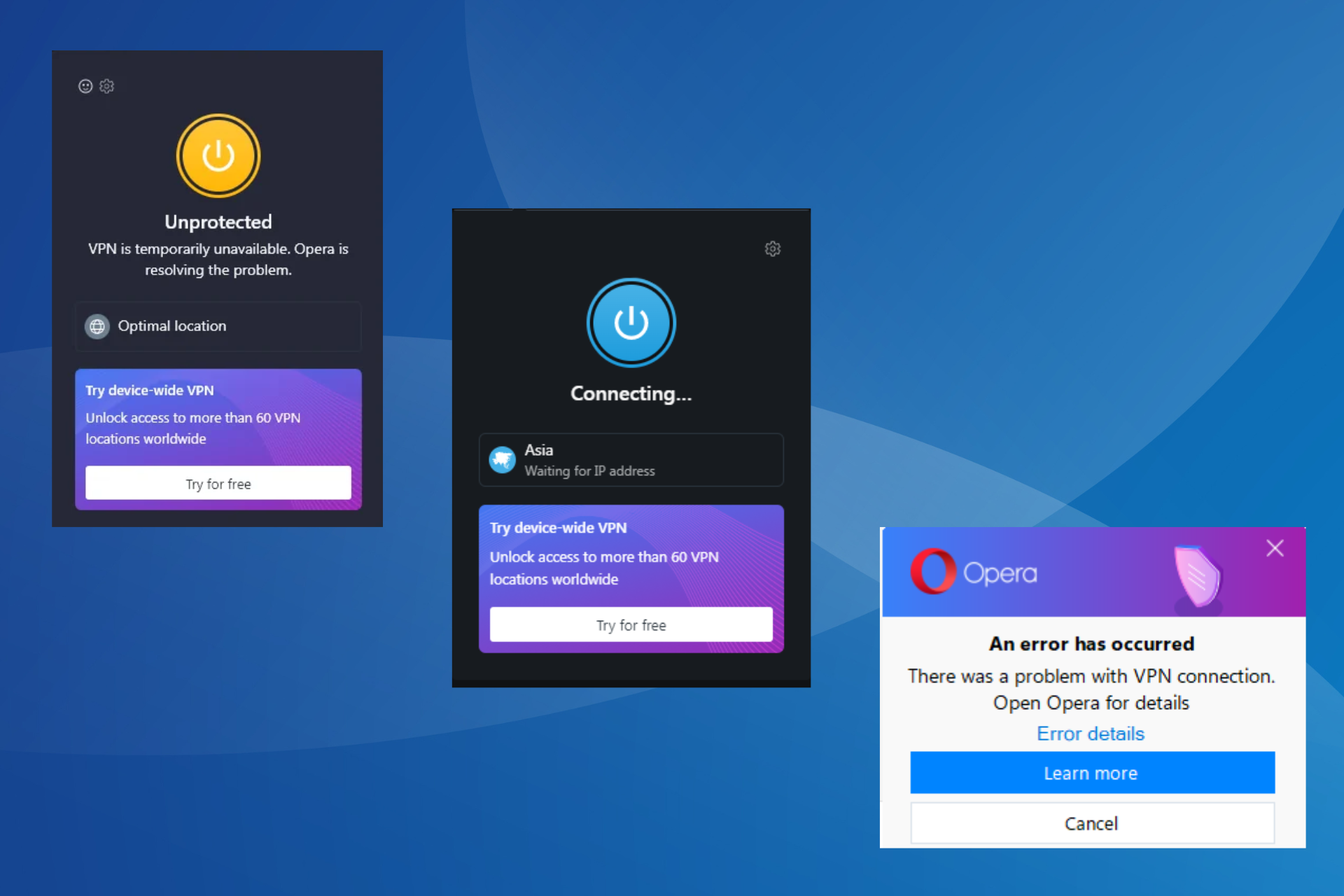
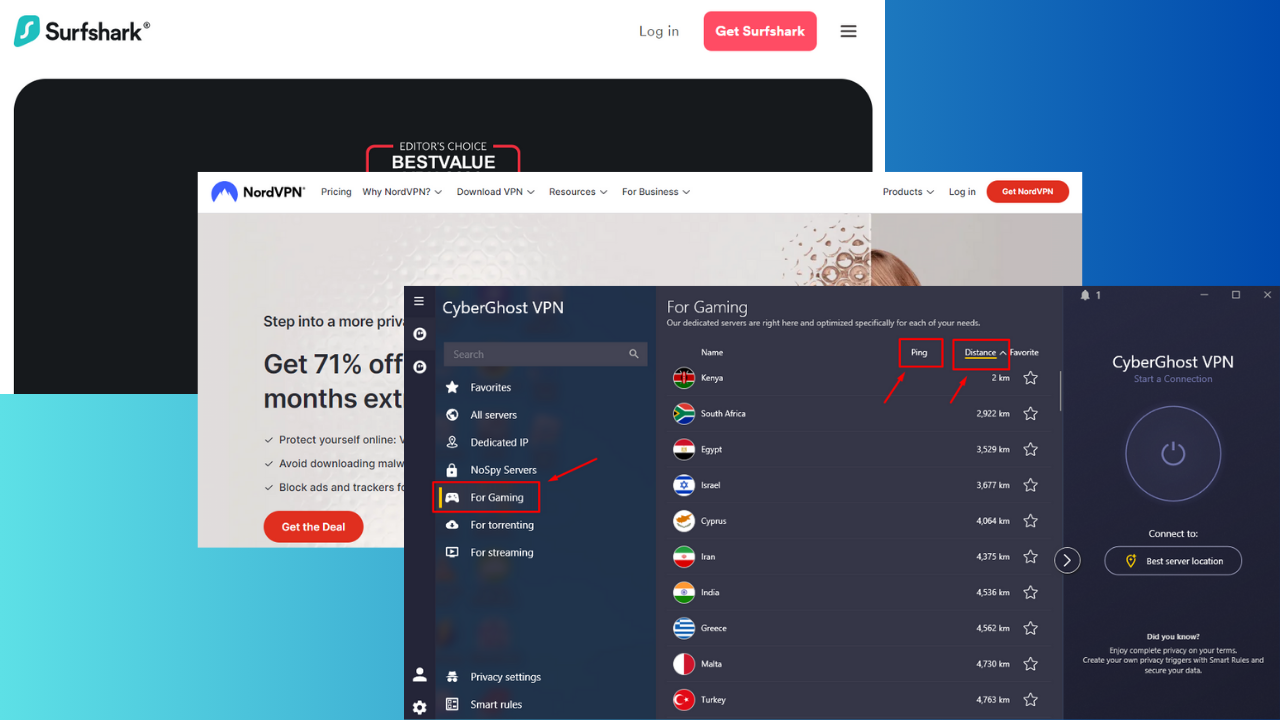


User forum
0 messages